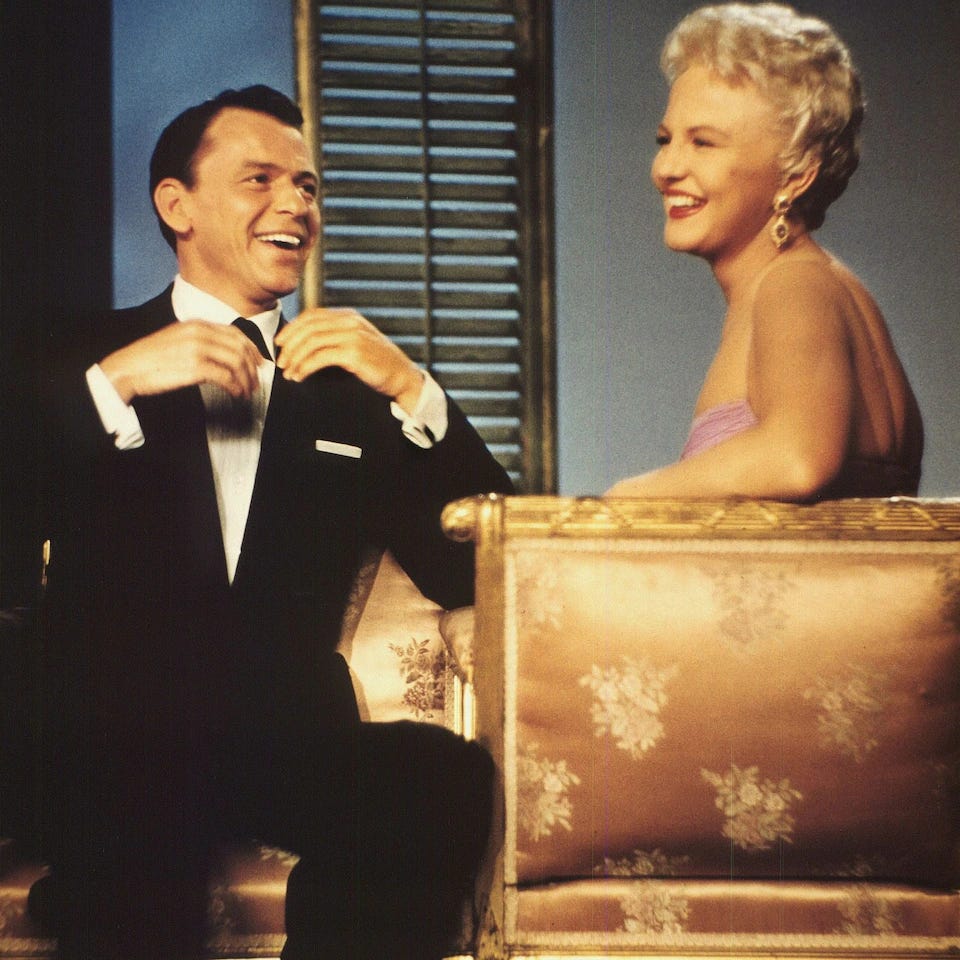The fourth in Michael Henderson’s series on 12 great popular songs is Then I’ll be Tired of You, by Arthur Schwartz and Yip Harburg, performed by Peggy Lee.
The words “smokily enchanted” fit Peggy Lee like a bug in a rug. Her voice lent itself to laments of loves lost and hopes unattainable. It belongs to a world of misty exclusion, though the lady never actually lost hope, and it was that not quite abandoned quality which gave her singing its flavour.
A star from her earliest days, she is associated in the public imagination with two contrasting songs. Fever, written by Eddie Cooley and Otis Blackwell, struggles to get out of third gear, but Lee’s reading has given it classic status. A B+ song is given an A- performance.
The Folks Who Live on the Hill, by Jerome Kern and Oscar Hammerstein, is undoubtedly a great song. Lee recorded it in 1957 on an LP called The Man I Love, arranged by Nelson Riddle, with (quiz question alert) Frank Sinatra conducting the band. Well, Capitol was Frank’s court, and the man who wears the crown usually gets his way.
It's not a badge of shame to stifle a tear or two when listening to that song, of days long gone, and memories submerged.
A third performance that has enjoyed wide appeal was composed by Jerry Lieber and Mike Stoller, better known for their work in the world of rock ‘n’ roll. Is That All There Is? might well have been written for Lee, with its sea fret of disappointment, and a bottle close to hand.
If that’s all there is, my friend,
Then let’s keep dancing.
Let’s break out the booze and have a ball,
If that’s all that there is.
Nobody ever accused Lee of having a ball. She was too fragile. It’s a grand act, though.
Arthur Schwartz was the melodist responsible for her best, as opposed to best-known, performance. With his regular partner, Howard Dietz, he wrote Dancing in the Dark and Alone Together. His collaborator on Then I’ll Be Tired of You was Yip Harburg, whose words enriched so many songs. Over the Rainbow, with Harold Arlen, is the best-known; That Old Devil Moon, with Burton Lane, may be the best, though some judges incline towards April in Paris, written with Vernon Duke.
Their song takes its place on that record shaped by Riddle and Sinatra.
I’ll be tired of you
When stars are tired of gleaming,
When I am tired of dreaming
Then I’ll be tired of you.
Another example of less meaning more. That gift of compression was shared by all the major wordsmiths. It isn’t poetry, but it has a poetic ring.
This I know is true.
When winds are tired of blowing,
When grass is tired of growing,
Then I’ll be tired of you.
All through the song, though, floats that fog of misty exclusion. She may have sworn fidelity until the end of time but she was married four times.
It was a stellar career, which caught fire when Benny Goodman invited her to front his band, and it wasn’t wise to say no to that man. She was a writer of songs, too, but it is the jazz-inflected popular singer we remember today.
Lee was a regular on television shows throughout her career, and appeared in many films. Her final years were blighted by diabetes, and she ended up in a wheelchair. Then I’ll Be Tired of You is the best way to summon her memory, though Mr. Wonderful is also pretty good. Pour two fingers of Scotch, and wallow.
Hendo’s Dozen, so far:
Fred Astaire: I’m Old Fashioned; Jerome Kern and Johnny Mercer.
Lena Horne: It Could Happen to You; Jimmy Van Heusen and Johnny Burke.
Tony Bennett: I Walk A Little Faster; Cy Coleman and Carolyn Leigh.
Peggy Lee: Then I’ll Be Tired of You; Arthur Schwartz and Yip Harburg.





